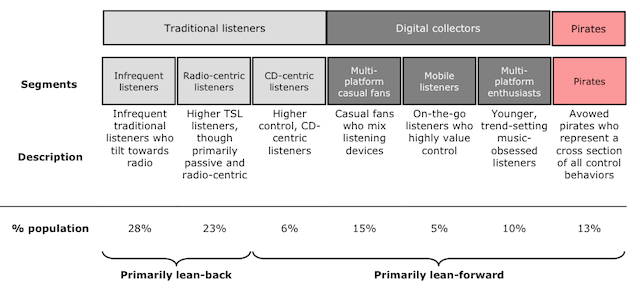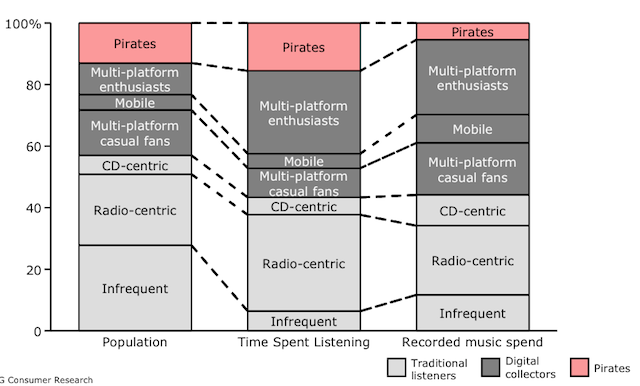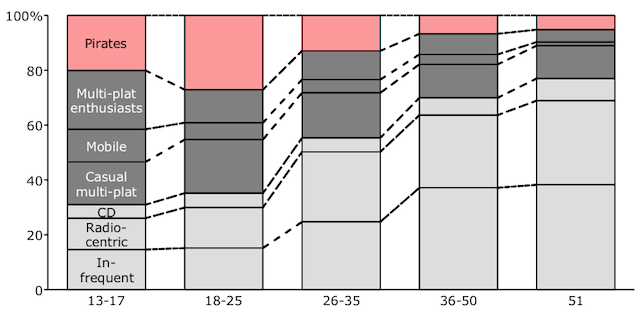The music industry's latest annual report on the digital world has one main "ask" in it: would governments around the world please, please, pretty please get off their collective lard-filled posteriors and start passing the sorts of laws that would dragoon Internet providers into the antipiracy wars?
Whatever one thinks of this as a policy approach, it certainly represents a considerable shift in Internet regulation. Given the strength of the medicine, it's worth examining just how bad the disease is; that is, how many music pirates actually exist?
Given draconian public pronouncements in the past that, for instance, 95 percent of digital music has been illegally acquired, one might be forgiven for thinking that almost everyone on the 'Net is a pirate. It's not true. In fact, according to the music industry's own research, only a small percentage of Internet users are even pirates in the first place—and even the pirates turn out to spend money on music.
Pirates by the numbers
For US numbers, we can turn to Warner Music, one of the world's largest music labels and a company that devoted plenty of time to researching the audience for its products. Last year, Warner execs stopped by the offices of the Federal Communications Commission to brief the agency on its findings—and what it found was that 13 percent of Americans were music pirates.

That's still a substantial number, but the effects of that piracy are mitigated by the fact that even the pirates spend their money on music. As you might expect, they listen to more music and spend less money than other groups, but Warner's own chart shows that piracy doesn't cut one's expenditures to nothing. And, as the company notes in another slide, the pirates "tend to drive high discovery for others ('others always want my advice on music')."

Piracy also skews young, with that 13 percent figure being heavily weighted by 13- to 25-year-olds. Above 25, the figure drops rapidly.

The situation in Europe is similar. In 2009, research by Jupiter Networks found that 16 percent of Internet users there "regularly" use P2P networks to share and acquire music, while a 2010 study from Harris Interactive found that 14 percent of UK Internet users get video content from P2P networks. (Note that, because these numbers are only for Internet users, they would be even lower if applied to the entire population, putting them more in line with the US figures.)
Pirates turn out to have large music collections—Warner estimates the average piratical treasure chest to hold 3,100 tracks—and they do share huge amounts of music online. But they account for relatively small percentages of Internet users, and even this percentage isn't a group of total freeloaders.
This fits with recent academic work on file-sharing, which last year looked at various file-sharing studies and concluded that about 20 percent of the music industry's woes could be blamed on online infringement; the other 80 percent was caused by things like the decline of the album, the rise of singles on iTunes, and the death of high-priced CDs.
reader comments
161